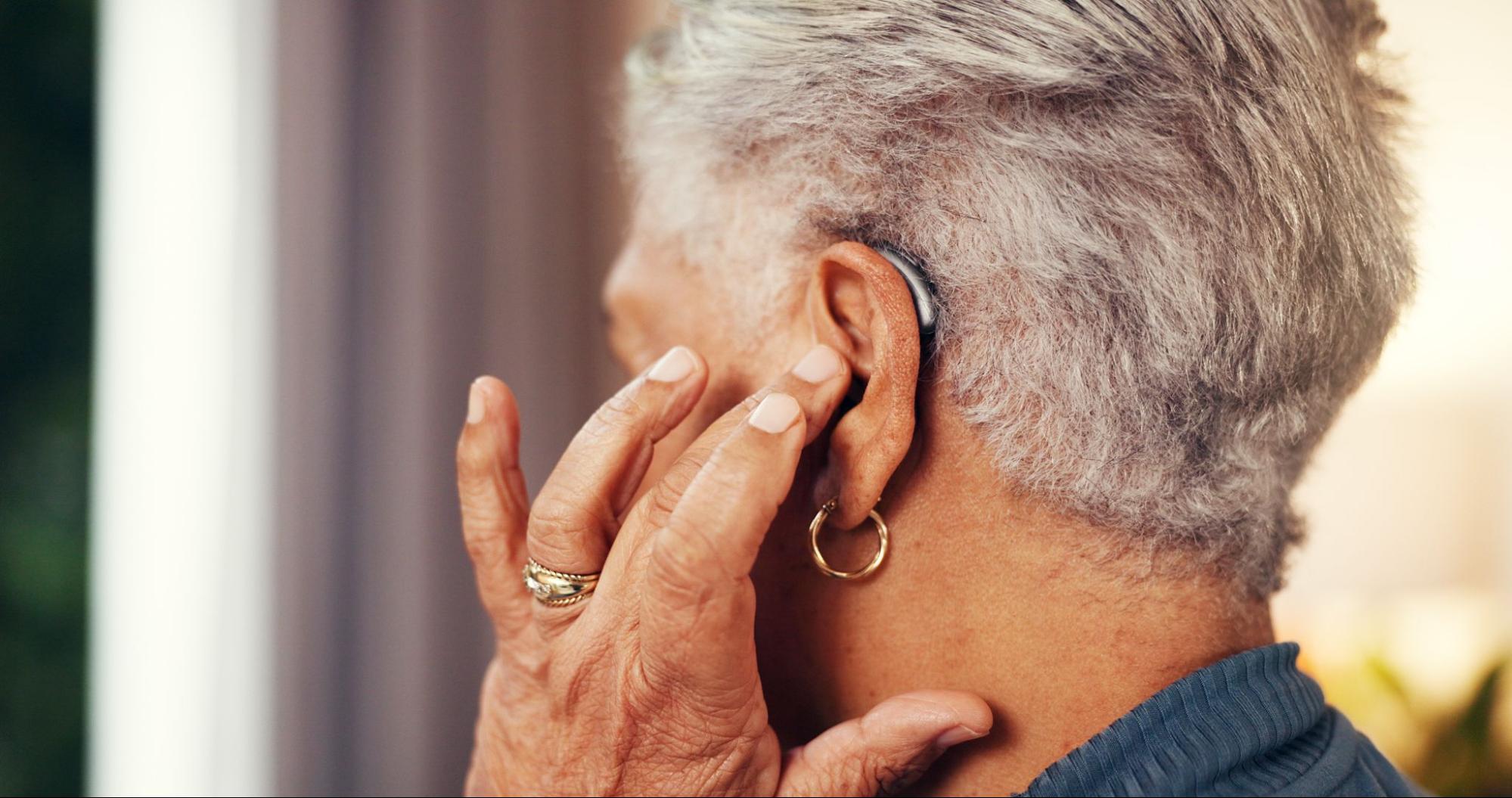How hearing affects mental health: What you should know
%20(1).jpeg)
Hearing connects us to the world. It allows us to engage in conversations, enjoy music, and feel part of our communities. But when hearing loss occurs, it can create significant challenges—not just in communication, but also in emotional well-being.
Hearing loss isn't just about the ears—it's about the mind, too. Research shows a strong connection between hearing health and mental health. Untreated hearing loss can lead to feelings of isolation, anxiety, and even depression. The good news? Taking action with hearing aids and support can greatly improve overall quality of life and emotional well-being.
The link between hearing loss and mental health
Hearing loss affects more than just conversations. It influences how we interact with the world, impacting our relationships, confidence, and mental health. Here's how:
1. Social isolation and loneliness
One of the most immediate effects of hearing loss is difficulty following conversations, especially in noisy environments. Over time, this challenge can cause individuals to withdraw from social settings, leading to isolation. Studies show that social isolation is a major risk factor for depression and anxiety.
2. Increased stress and anxiety
Struggling to hear can be exhausting. Straining to catch words and interpret sounds can lead to stress and frustration, making social interactions feel overwhelming. Many people with hearing loss experience heightened anxiety, particularly in group settings where they fear misunderstanding or missing important details.
3. Cognitive decline and Dementia risk
Hearing loss doesn't just affect emotions, it also impacts brain function. Research has linked untreated hearing loss to an increased risk of cognitive decline and dementia. When the brain works harder to process sound, it has fewer resources available for memory and thinking skills. Over time, this increased cognitive load can contribute to memory loss and cognitive impairment.
4. Depression and emotional well-being
When communication becomes difficult, feelings of frustration and sadness often follow. Studies have shown that individuals with untreated hearing loss are more likely to experience depression. The inability to engage in conversations, enjoy hobbies, or connect with loved ones can lead to a decline in emotional health.
How hearing aids improve mental well-being
The good news is that hearing aids can make a significant difference—not just in hearing, but in overall mental health. Here's how:
1. Restoring connection to loved ones
With hearing aids, conversations become easier and more enjoyable. Individuals can reconnect with family and friends, participate in social gatherings, and regain confidence in their communication skills. This social engagement plays a crucial role in maintaining emotional well-being.

2. Reducing stress and fatigue
Hearing aids amplify sound, reducing the need to strain to hear. This makes listening less exhausting and allows the brain to process information more easily. As a result, individuals often experience lower stress levels and greater relaxation in daily interactions.
3. Lowering the risk of cognitive decline
By improving auditory input, hearing aids help keep the brain engaged and active. Studies indicate that people who use hearing aids regularly have a lower risk of cognitive decline compared to those who leave hearing loss untreated.
4. Boosting self-confidence and emotional health
Hearing aids can restore a sense of normalcy, allowing individuals to engage in activities they once enjoyed. Whether it's chatting with friends, listening to music, or attending social events, hearing aids help people regain independence and joy in their daily lives.
The Miracle-Ear Foundation: Bringing the Gift of Sound to those in need
At the Miracle-Ear Foundation, we believe that everyone deserves the ability to hear and connect with the world around them. Through our Gift of Sound® program, we provide free hearing aids and ongoing support to individuals who may not have the financial means to afford them.
Hearing aids are more than just devices, they're a lifeline to mental and emotional well-being. In 2024 alone, we helped thousands of people experience the Gift of Sound again, improving not just their communication, but their overall happiness and quality of life.
Take action for your hearing and mental health
If you or a loved one are experiencing hearing loss, don't wait to seek help. Early intervention can prevent the negative effects of hearing loss on mental health and cognitive function. Schedule a hearing test, see eligibility details for our Gift of Sound program, and take steps toward better hearing today.
Let's work together to ensure everyone has access to the Gift of Sound® and the mental well-being it brings.
Donate to the Miracle-Ear Foundation today and change a life.
References
- Johns Hopkins Bloomberg School of Public Health. (2021). Hearing Loss and the Dementia Connection. https://publichealth.jhu.edu/2021/hearing-loss-and-the-dementia-connection
- Harvard Health Publishing. (2013). Hearing loss may be linked to mental decline. Harvard Medical School. https://www.health.harvard.edu/blog/hearing-loss-may-be-linked-to-mental-decline-201301225824
- National Institute on Aging. (2023). Hearing Loss: A Common Problem for Older Adults. https://www.nia.nih.gov/health/hearing-and-hearing-loss/hearing-loss-common-problem-older-adults
- Deal, J. A., Sharrett, A. R., Albert, M. S., Coresh, J., Mosley, T. H., Knopman, D., Wruck, L. M., & Lin, F. R. (2017). Hearing impairment and cognitive decline: A pilot study conducted within the Atherosclerosis Risk in Communities Neurocognitive Study. Journal of Aging and Health, 29(3), 424–437. https://doi.org/10.1177/0898264317721349
- Maharani, A., Dawes, P., Nazroo, J., Tampubolon, G., & Pendleton, N. (2018). Longitudinal relationship between hearing aid use and cognitive function in older Americans. Journal of the American Geriatrics Society, 66(6), 1130–1136. https://doi.org/10.1016/j.jamda.2018.03.002






